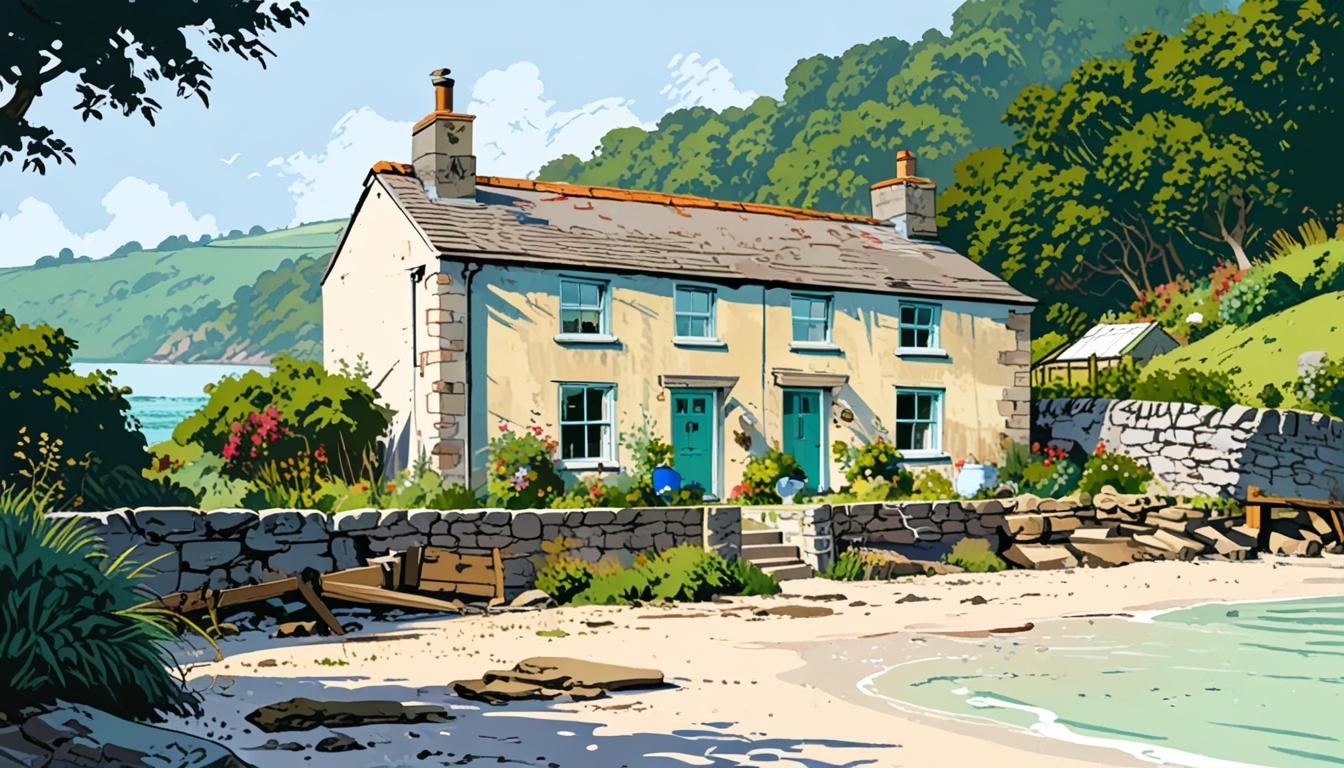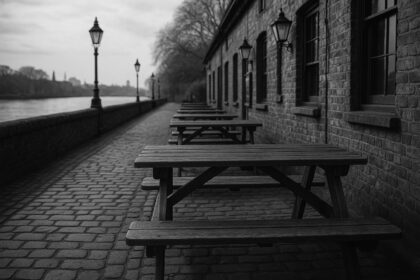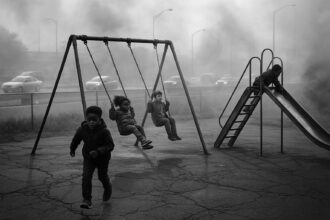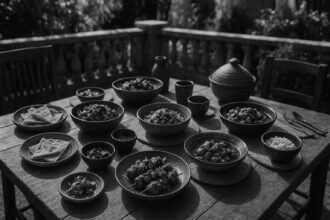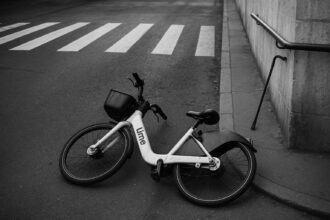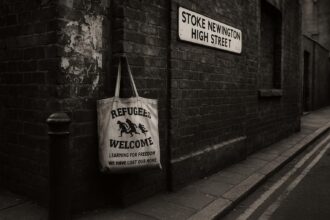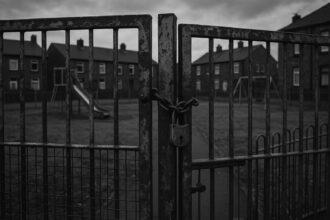A first-hand account reveals the unexpected challenges faced by newcomers to Cornwall, from housing shortages and rural isolation to the divisive impact of overtourism on local communities and the struggle to find a sense of belonging.
With a glass of champagne in hand, I felt a wave of relief as I surveyed the turquoise River Fal in October 2017. My fiancé and I had just had our offer accepted on a charming cottage near St Mawes for £450,000, marking the beginning of what we believed would be a tranquil life away from the relentless hustle of the southeast. Dreams of idyllic beaches and quaint villages filled my mind, hinting at a slower, more fulfilling pace of life in Cornwall.
However, the idyllic image soon began to crack. Our full-time move to the cottage didn’t occur until Christmas 2019, complicated by work commitments that meant one of us was frequently returning to London or Cambridge. The reality of life in a half-renovated home in a remote village, coupled with the stress of caring for a newborn, ultimately strained our long-standing relationship.
As I adjusted to life as a single mother, I found myself yearning for the anonymity and social networks of urban life. Ironically, I was physically closer to my extended family than I had been in years, yet the challenges of rural isolation felt overwhelming. This rural romanticism had swiftly morphed into a stark reality.
Throughout the summer months, the influx of tourists transformed my village into a bustling hotspot, filling once-quiet roads with congested traffic and leaving overflowing bins in their wake. Locals refer to this phenomenon as “overtourism,” highlighting the significant issue of underinvestment in essential infrastructure. A singular gym, scarcely accessible to residents, often catered exclusively to visitors, reinforcing feelings of exclusion during peak seasons.
The sense of division between locals and newcomers became unmistakable. When I protectively inquired if the village shop stocked oat milk, I was met with apparent hostility, underscoring a reluctance to accommodate what some locals might view as urban encroachment. This sentiment reflects broader trends in Cornwall, where there exists a complex relationship between tourism, local culture, and community dynamics. Indeed, tourism has been cited as both a boon for the local economy and a contributor to significant housing challenges, as highlighted in recent parliamentary discussions.
Many Cornish locals lament the “housing crisis,” yet they resist the construction of affordable homes that could provide more options for local residents, particularly for those priced out by second homes and holiday lets. Such resistance highlights a paradox in many tourist destinations, where the economic benefits of tourism come at the cost of local livelihoods and community cohesion.
For me, daily life offered small irritations that added to my stress. My neighbour’s dog, for instance, consistently left unwelcome gifts in my garden, emblematic of the everyday nuisances that can erode one’s peace. Instances of community gossip deprived me of the privacy I had taken for granted in the city; even minor conflicts became public narratives, challenging my ability to assimilate smoothly into this tight-knit environment.
Despite these initial struggles, I have recognised the potential for positive change. While my prior experiences have made social integration daunting, the school run and my daughter’s extracurricular activities have introduced me to other parents navigating similar transitions. Gradually, I have found a small but supportive community, with friendships blooming amidst shared challenges.
Thus, I have recommitted to making this coastal environment work for my family. After tentative explorations, I am beginning to embrace the tranquillity I once sought. Gardening and quiet moments with tea offer a tranquillity that, though different from my initial dreams, is becoming a sanctuary. While Cornwall may not have transformed into the perfect seaside life I envisaged, I am learning to adapt, finding beauty and friendship in unexpected places.
As the balance between tourism and local life continues to be debated, the path ahead will undoubtedly require thoughtful consideration of both visitor enjoyment and resident comfort. In Cornwall, the interplay of heritage, economy, and community dynamics will dictate the future lives of newcomers like me, while shaping the enduring identity of this cherished region.
Reference Map
- Paragraph 1: [1]
- Paragraph 2: [1][2]
- Paragraph 3: [1][3][4]
- Paragraph 4: [2][5]
- Paragraph 5: [1][4][6]
- Paragraph 6: [2][7]
- Paragraph 7: [1][5][6]
- Paragraph 8: [1][3]
- Paragraph 9: [1][2][7]
Source: Noah Wire Services
- https://www.dailymail.co.uk/news/article-14692513/Why-regret-moving-Cornwall-tourists.html?ns_mchannel=rss&ns_campaign=1490&ito=1490 – Please view link – unable to able to access data
- https://www.culturesouthwest.org.uk/guides/pros-and-cons-of-moving-to-cornwall/ – This article outlines the advantages and disadvantages of relocating to Cornwall. It highlights the region’s natural beauty and slower pace of life as key attractions. However, it also points out challenges such as limited employment opportunities, lower wages, and slower transport and communications infrastructure. The piece emphasizes that while Cornwall offers a unique lifestyle, potential movers should be aware of these factors when considering a move.
- https://www.bishopsmove.com/blog/moving-to-cornwall-what-you-need-to-know/ – This guide provides essential information for those contemplating a move to Cornwall. It discusses the bustling summer tourist season, which can lead to crowded beaches and heavy traffic, and the quieter winter months that some locals prefer. The article also touches on Cornwall’s unique culture, including its traditions and the Cornish language, and offers advice on integrating into the community through local activities and clubs.
- https://hansard.parliament.uk/commons/2023-11-28/debates/2F66821F-9F36-49E1-AAF1-5BDA18648AB4/HousingInTouristDestinations – In this parliamentary debate, the impact of tourism on housing in Cornwall is discussed. The speaker highlights that tourism significantly contributes to the local economy but also leads to unintended consequences, particularly in housing. The influx of second homes and holiday lets has driven up property prices, making it difficult for local residents to afford homes. The debate underscores the need for a balance between tourism and housing availability for locals.
- https://www.consciouscreatives.co.uk/cornwall/visitor-economy/ – This article examines the challenges of Cornwall’s visitor economy, focusing on seasonality and its effects on local communities. It discusses how the influx of tourists during peak seasons leads to increased waste, traffic congestion, and pressure on public services. The piece also addresses the impact of second homes and holiday lets on housing affordability for local residents, emphasizing the need for sustainable tourism practices to mitigate these issues.
- https://www.cornwalllive.com/news/cornwall-news/real-effect-millions-tourists-cornwalls-1565889 – This report explores the impact of tourism on Cornwall’s infrastructure and services. It highlights the strain on roads due to increased traffic, with main routes becoming congested during peak tourist seasons. The article also discusses the pressure on public services, including the police and emergency departments, and the environmental challenges posed by the influx of visitors, such as increased waste and pollution.
- https://www.bbc.com/news/uk-england-cornwall-58099906 – This BBC News article discusses the challenges Cornwall faces due to a surge in visitors. It reports that the county’s only 24-hour Emergency Department is overwhelmed, with waiting times often exceeding four hours. The piece also highlights the strain on local infrastructure, including roads and public services, and the growing anti-tourism sentiment among residents due to overcrowding and resource shortages.
Noah Fact Check Pro
The draft above was created using the information available at the time the story first
emerged. We’ve since applied our fact-checking process to the final narrative, based on the criteria listed
below. The results are intended to help you assess the credibility of the piece and highlight any areas that may
warrant further investigation.
Freshness check
Score:
8
Notes:
The narrative does not reference outdated information that would indicate it is recycled. However, specific personal events and movements mentioned are several years old.
Quotes check
Score:
10
Notes:
There are no direct quotes mentioned in the narrative, so there is no need to verify their origin.
Source reliability
Score:
7
Notes:
The narrative originates from the Daily Mail, a known publication but one that can vary in reliability depending on topics.
Plausability check
Score:
9
Notes:
The narrative presents a plausible account of life in Cornwall, aligning with known issues such as overtourism and housing challenges.
Overall assessment
Verdict (FAIL, OPEN, PASS): PASS
Confidence (LOW, MEDIUM, HIGH): MEDIUM
Summary:
The narrative appears fresh and plausible, aligning with existing issues in Cornwall. The reliability of the source is somewhat variable, but overall, the content seems credible.


